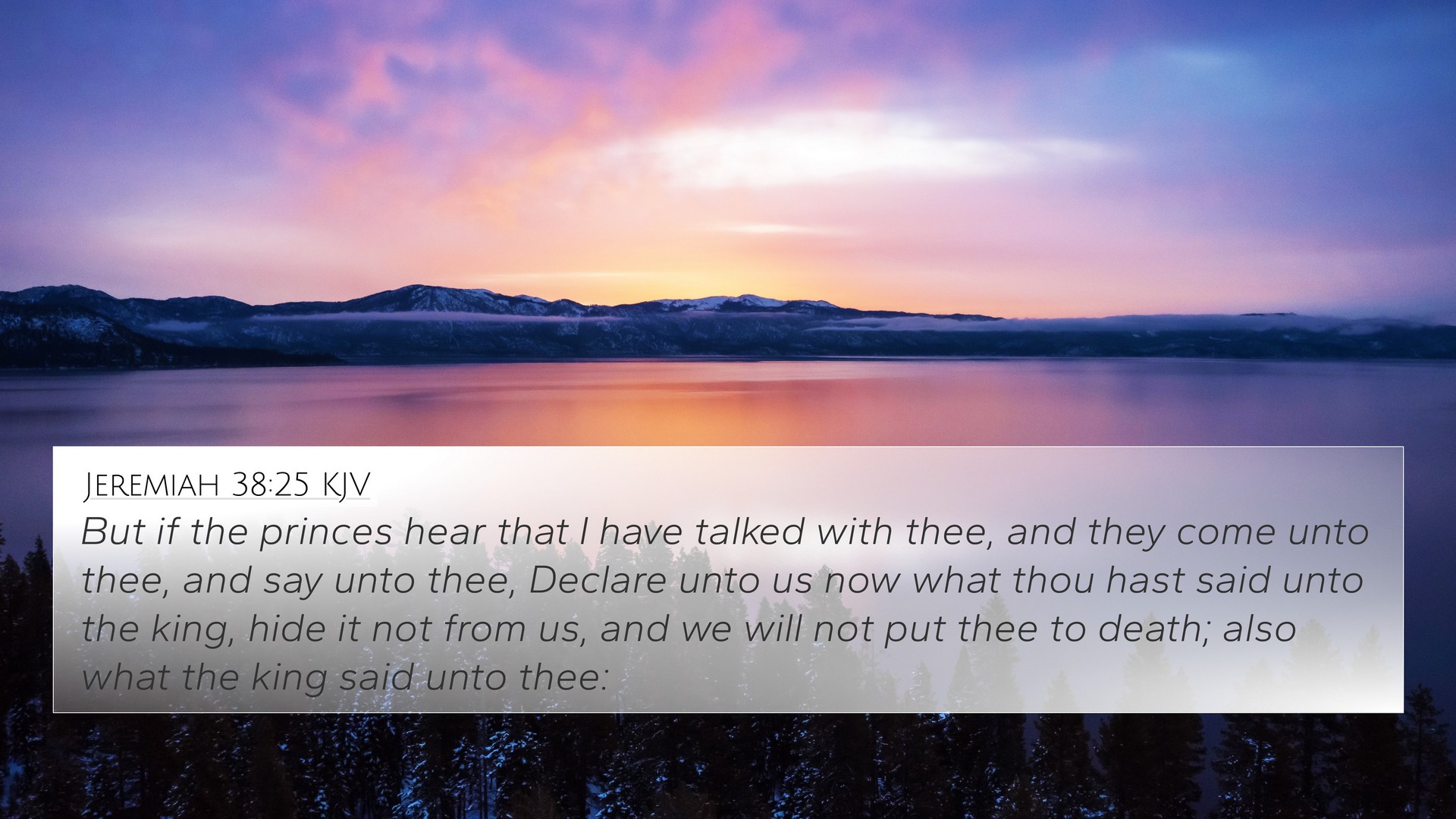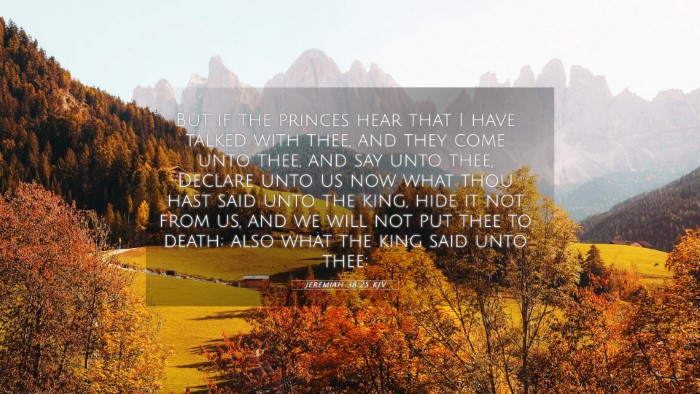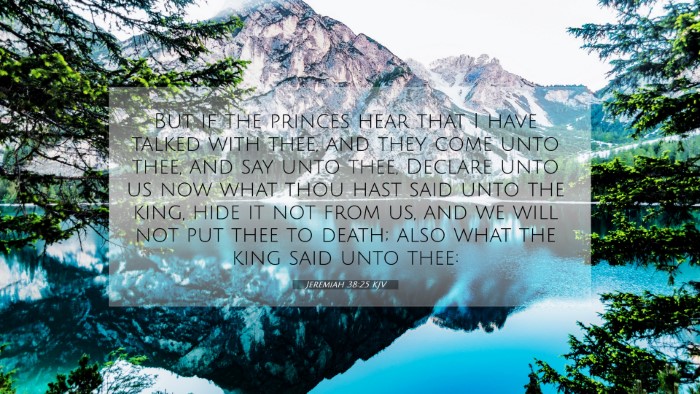Understanding Jeremiah 38:25
Jeremiah 38:25 states: “But if the princes hear that I have talked with you, and they come unto you, and say unto you, Declare unto us now what thou hast said unto the king, hide it not from us, and we will not put thee to death; also, what the king said unto you.”
This verse occurs in a context where Jeremiah is imprisoned and facing threats for his prophecies. The significance lies in the interplay between fear, loyalty, and the ethical obligations of the prophet.
Summary of Insights from Public Domain Commentaries
- Matthew Henry's Commentary: Henry highlights the tension of Jeremiah's situation. He suggests that the princes’ inquiry reflects the political anxieties of the time and their desire for control over the narrative. This event underscores the danger faced by Jeremiah, who only seeks to convey God's message amidst growing hostility.
- Albert Barnes' Notes: Barnes notes that the princes represent the rulers who were concerned about the implications of Jeremiah’s messages. This verse captures their urgent need to ascertain the prophet's words, indicating an awareness of their precarious position in the face of possible rebellion.
- Adam Clarke's Commentary: Clarke elaborates on the relationship dynamics between Jeremiah and the princes, inferring that their threats simultaneously reveal their fear of divine retribution should they disregard God's prophet. He points out the human motives intertwined with obedience and disobedience to God’s word.
Thematic Bible Connections
The themes presented in Jeremiah 38:25 resonate with various biblical principles, including the importance of truth, the trials faced by God’s messengers, and the consequences of political strife.
Cross-Referencing Related Bible Verses
- Jeremiah 37:17: This verse shows King Zedekiah's interaction with Jeremiah, reflecting the ruler's need for prophetic insight amidst turmoil.
- Jeremiah 26:8-9: Here, the officials confront Jeremiah regarding his prophecies, demonstrating their fear of public dissent.
- Luke 12:4-5: This New Testament parallel reflects the eternal struggle of speaking the truth despite the fear of man, as Jesus encourages fear of God's judgment over earthly consequences.
- Acts 5:29: Peter’s declaration that “we ought to obey God rather than men” echo the sentiments of prophetic obedience amidst human opposition.
- 2 Timothy 1:7: This verse teaches about not having a spirit of fear, which is applicable to Jeremiah's situation where courage was necessary.
- Matthew 10:28: It emphasizes the importance of fearing God rather than man, paralleling Jeremiah’s predicament of obedience to divine instruction.
- Isaiah 30:1-2: This reflects the consequences of rejecting divine guidance and the futility of seeking counsel from unholy alliances, relevant to the princes' actions in Jeremiah’s time.
Purpose of the Verse
The function of Jeremiah 38:25 in the broader narrative reveals the prophetic role during times of crisis and the challenges faced in communicating God's will amidst fear and uncertainty. It illustrates the struggle between earthly powers and divine authority.
Conclusion
Jeremiah 38:25 encapsulates the complex relationship between prophetic truth and political authority. Understanding this verse, alongside its connections to other scripture, allows readers to delve into themes of fear, obedience, and the cost of proclaiming God's messages. By engaging in comparative Bible verse analysis, one can uncover deeper truths about faithfulness and the trials endured by God's prophets throughout biblical history.
Engaging with Cross-References
Utilizing tools for Bible cross-referencing enhances our understanding of scripture. By exploring the connections between Bible verses, readers can gain insights into the overarching messages of the Bible, illuminating complex themes and encouraging meaningful engagement with God's word.




